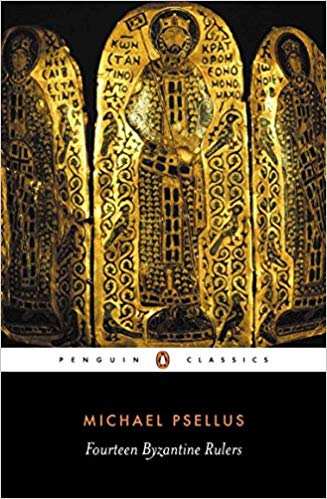

Like Psellos himself, Michael VI was an imperial bureaucrat. Psellos’ “Fourteen Byzantine Rulers” includes a vivid description of the whole sorry end to Michael V. Where was Michael Psellos as all this was happening to the emperor he had served? At the front of the rioters, loudly berating the erstwhile emperor for his disloyalty to Zoe. That was not enough for the mob which located this foolish young man, dragged him outside of the monastery, and blinded him. They rioted, forcing Michael to quickly abdicate and enter a monastery himself. The city’s populace loved Zoe and rebelled. He decided to exile Empress Zoe to a monastery on the island of Prinkipo in the Sea of Marmara. Without the Orphanotrophos’ advice Michael V soon blundered in his quest to be the sole ruler. However, Michael V had little affection for the older man and banished him to a remote Greek island where he died. The Orphanotrophos was a smart man, politically savvy, and vicious to any perceived enemy. Michael IV’s brother, the eunuch John the Orphanotrophos, engineered the succession to keep the throne in their family. Young Michael V succeeded his uncle, Michael IV, as emperor sitting beside Empress Zoe. Given the speed with which the throne turned over, sometimes with Psellos’ nudge, it is worthwhile examining some of the changes in which he participated. How does someone accomplish that? Difficult to know from this distance, but it likely involved the usual political activities of groveling, pandering, and flattery. This would be equivalent to someone being in a high level in the US government in every administration from Harry Truman’s to Donald Trump’s. Amazingly, in a feat I have no knowledge of ever occurring elsewhere, he managed to serve the remaining thirteen emperors or empresses, generally in high level positions until the early 1070’s. Basil II was the only one he never met although Psellos did recall seeing him in a parade as a child. His “Chronographia”, popularly known as “Fourteen Byzantine Rulers” describes Byzantium’s rulers of the first 75 years of the 11th century. Eventually, he became a secretary in the Great Palace during the reign of Michael IV, climbing to the top of the political ladder.

Michael Psellos, the quintessential Byzantine bureaucrat, began his career in the imperial justice system, working in Anatolia in the 1030’s.

This is the second of three posts on Michael Psellos and his impact on medieval Byzantium. Michael Psellos and Emperor Michael VII Ducas


 0 kommentar(er)
0 kommentar(er)
